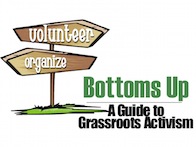Michael Cummings -- #03723-028
Life in Prison -- Methamphetamine Conspiracy
 I was arrested in March of 1991 for methamphetamine. Although I was in possession of less than a gram, I was charged with "manufacturing 100 grams or more of methamphetamine." The government offered me a deal of 5 years; all I had to do was 'cooperate', (that means snitching on others). I couldn't do that. I wasn't raised that way. My parents had raised me to think it was wrong to tell on other people and no one wanted to be known as a "tattle-tale."
I was arrested in March of 1991 for methamphetamine. Although I was in possession of less than a gram, I was charged with "manufacturing 100 grams or more of methamphetamine." The government offered me a deal of 5 years; all I had to do was 'cooperate', (that means snitching on others). I couldn't do that. I wasn't raised that way. My parents had raised me to think it was wrong to tell on other people and no one wanted to be known as a "tattle-tale."
Come time for my trial and with no evidence to substantiate the charges against me, the government waived my rights to a "fast and speedy trial." Soon the government went back to the grand jury and received a superseding indictment charging twelve additional people with "Conspiracy to manufacture and conspiracy to distribute methamphetamine." Now the less than a gram had grown to 1,000 grams or more. My co-conspirators, (some of which I had never met), must not have been raised as I was. Most of them had no problems in telling the government what they wanted to hear, especially after much coercion and threats.
In addition, I was charged with being a felon in possession of a firearm. Although I received a "proceedings suspended" in that case and was never convicted of the prior felony (drug possession), my arguments fell on deaf ears.
After a lop-sided trial (the judge denied all of my motions) I was convicted of all charges. I now had become the "leader/organizer" of a drug conspiracy. The less than a gram of meth had now grown to as much as 10 kilos. The judge said, "I sentence you to Life, the rest of your natural born days, and that means forever." Life? That's a huge jump from 5 years. I guess that's what I get for exercising my constitutional right to a trial by jury and not wanting to be know as a "tattle-tale."
My lawyer appealed my conviction, as well as my sentence, and of course I was denied. He told me the government wanted to make an example of me, mine being the first meth manufacturing case in Indiana. His advice to me was "to wait on filing a 2255 motion, give them 10 years (that's the mandatory minimum) keep your nose clean and then try to get back in court."
It sounded like sound advice at the time, my lawyer had no way of knowing Congress would pass a law (the Anti-Terrorism and Effective Death Penalty Act of 1996) that would essentially bar me from getting back in court. I wasn't much worried about this new law at the time, I still had some faith in our Constitution and I knew the Constitution prohibited Congress from passing any "ex post-facto laws." So much for my faith, the courts must not have read that part of the Constitution or maybe they don't really care what it says.
It doesn't really matter that the Supreme Court ruled in Apprendi v. New Jersey, and numerous cases since, that sentences such as mine are unconstitutional. The government says I'm procedurally barred from filing even my first 2255 motion. I'm real puzzled as to how it could be possible for something to be unconstitutional today and not yesterday.
I read of the "epidemic of meth" here in America and how much drugs there are on the streets. It doesn't really surprise me, if less than a gram could have grown to as much as 10 kilos in 7 short months, just think how much it could have grown to in 11 years.
I failed to mention being a "decorated Vietnam veteran" and the prosecutor's last words to the jury, "The United States is not at war. We don't need war heroes, send him to prison." Well you can't convince me there is not a war going on. Everyday I read about the "War on Drugs" and I'm definitely a prisoner of that war.
_________________________________________
A note from Christmas 2002:
It's Christmas time again. This is my 11th one here in the federal prison at Terre Haute, Indiana.
Christmas time brings back memories, some good and some bad. It brings back memories of being free, and memories of my Christmases in 1967 and 1968 while serving as a young medic paratrooper in Vietnam. I received hundreds of cars and Christmas packages from people back home, thanking me and showing their appreciation for serving my country.
When I returned from Vietnam, not only did I bring back the memories, the malaria, the wounds and the medals, (my country said I was a hero), but I also brought back a drug habit. Eventually, the drug habit won over and landed me in a new war. This time, as a "Prisoner of the drug war."
I no longer receive the Christmas cards and packages, although I'm still the same person I was back then, when my country said I was a war hero. Of course, I'm much older now, and I no longer have a drug habit. But now my country says I'm a threat to society, "for a non-violent drug crime," and I must spend the rest of my Christmases here in federal prison.
Recently, the Supreme Court ruled, in Apprendi vs. New Jersey, that sentences like mine were unconstitutional. But, Congress passed a law in 1996 called the Anti-Terrorism and Effective Death Penalty Act, that says I can no longer file an appeal because of a technicality. So, I must sit here, Christmas after Christmas, thinking of the memories, for the rest of my life.
Do you really think the "War on Drugs" is working?
Life in Prison -- Methamphetamine Conspiracy

Come time for my trial and with no evidence to substantiate the charges against me, the government waived my rights to a "fast and speedy trial." Soon the government went back to the grand jury and received a superseding indictment charging twelve additional people with "Conspiracy to manufacture and conspiracy to distribute methamphetamine." Now the less than a gram had grown to 1,000 grams or more. My co-conspirators, (some of which I had never met), must not have been raised as I was. Most of them had no problems in telling the government what they wanted to hear, especially after much coercion and threats.
In addition, I was charged with being a felon in possession of a firearm. Although I received a "proceedings suspended" in that case and was never convicted of the prior felony (drug possession), my arguments fell on deaf ears.
After a lop-sided trial (the judge denied all of my motions) I was convicted of all charges. I now had become the "leader/organizer" of a drug conspiracy. The less than a gram of meth had now grown to as much as 10 kilos. The judge said, "I sentence you to Life, the rest of your natural born days, and that means forever." Life? That's a huge jump from 5 years. I guess that's what I get for exercising my constitutional right to a trial by jury and not wanting to be know as a "tattle-tale."
My lawyer appealed my conviction, as well as my sentence, and of course I was denied. He told me the government wanted to make an example of me, mine being the first meth manufacturing case in Indiana. His advice to me was "to wait on filing a 2255 motion, give them 10 years (that's the mandatory minimum) keep your nose clean and then try to get back in court."
It sounded like sound advice at the time, my lawyer had no way of knowing Congress would pass a law (the Anti-Terrorism and Effective Death Penalty Act of 1996) that would essentially bar me from getting back in court. I wasn't much worried about this new law at the time, I still had some faith in our Constitution and I knew the Constitution prohibited Congress from passing any "ex post-facto laws." So much for my faith, the courts must not have read that part of the Constitution or maybe they don't really care what it says.
It doesn't really matter that the Supreme Court ruled in Apprendi v. New Jersey, and numerous cases since, that sentences such as mine are unconstitutional. The government says I'm procedurally barred from filing even my first 2255 motion. I'm real puzzled as to how it could be possible for something to be unconstitutional today and not yesterday.
I read of the "epidemic of meth" here in America and how much drugs there are on the streets. It doesn't really surprise me, if less than a gram could have grown to as much as 10 kilos in 7 short months, just think how much it could have grown to in 11 years.
I failed to mention being a "decorated Vietnam veteran" and the prosecutor's last words to the jury, "The United States is not at war. We don't need war heroes, send him to prison." Well you can't convince me there is not a war going on. Everyday I read about the "War on Drugs" and I'm definitely a prisoner of that war.
_________________________________________
A note from Christmas 2002:
It's Christmas time again. This is my 11th one here in the federal prison at Terre Haute, Indiana.
Christmas time brings back memories, some good and some bad. It brings back memories of being free, and memories of my Christmases in 1967 and 1968 while serving as a young medic paratrooper in Vietnam. I received hundreds of cars and Christmas packages from people back home, thanking me and showing their appreciation for serving my country.
When I returned from Vietnam, not only did I bring back the memories, the malaria, the wounds and the medals, (my country said I was a hero), but I also brought back a drug habit. Eventually, the drug habit won over and landed me in a new war. This time, as a "Prisoner of the drug war."
I no longer receive the Christmas cards and packages, although I'm still the same person I was back then, when my country said I was a war hero. Of course, I'm much older now, and I no longer have a drug habit. But now my country says I'm a threat to society, "for a non-violent drug crime," and I must spend the rest of my Christmases here in federal prison.
Recently, the Supreme Court ruled, in Apprendi vs. New Jersey, that sentences like mine were unconstitutional. But, Congress passed a law in 1996 called the Anti-Terrorism and Effective Death Penalty Act, that says I can no longer file an appeal because of a technicality. So, I must sit here, Christmas after Christmas, thinking of the memories, for the rest of my life.
Do you really think the "War on Drugs" is working?

